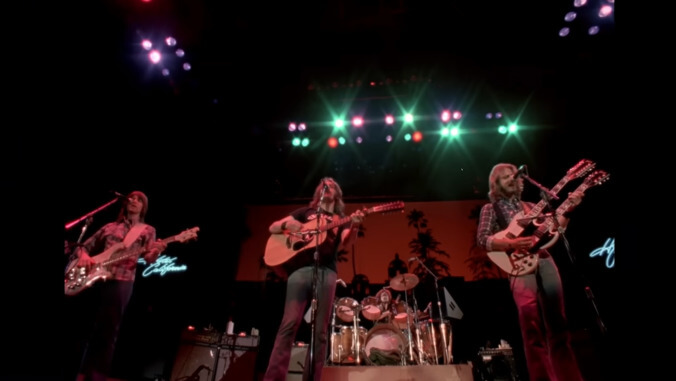The reportedly 6,000 pages of previously private communications between Henley and his lawyers have not been made public, but according to the Associated Press, the defense argued the emails “identified additional potential witnesses and raised questions about some testimony from Henley and others.” The prosecution ultimately agreed with the defense and declined to move forward with the case. “These delayed disclosures revealed relevant information that the defense should have had the opportunity to explore in cross-examination of the People’s witnesses,” Assistant Manhattan District Attorney Aaron Ginandes wrote (via NBC News). The case was then dismissed by Judge Curtis Farber, who said that “witnesses and their lawyers” used attorney-client privilege “to obfuscate and hide information that they believed would be damaging.”
Here’s how the whole thing went down: Henley only realized the “Hotel California” lyrics (among other Eagles-related documents) were missing when they went up for auction in 2012. He bought back some of the material himself, but also reported his property stolen. The new emails reportedly reveal that Henley’s lawyers initially wanted to categorize the situation a “burglary” to make their case stronger.
However, the chain of possession actually started with Ed Sanders, a writer contracted to pen an Eagles biography back in 1979. Henley testified that he gave Sanders access to the handwritten Eagles memorabilia, but he had “never gifted them or gave them to anybody to keep or sell.” Nevertheless, Sanders (who was never on trial) kept them and sold them to rare books dealer Glenn Horowitz, who then sold them to Rock and Roll Hall of Fame curator Craig Inciardi and rock memorabilia collector Edward Kosinski, who put the pages up for auction in 2012. Per the AP, prosecutors argued that this trio “knew the pages’ chain of possession was shaky but sought to keep and sell them anyway, contriving to fabricate a provenance that would pass muster with auction houses and stave off Henley’s demands for the return of the handwritten sheets.”
“We are glad the district attorney’s office finally made the right decision to drop this case. It should never have been brought,” Jonathan Bach, an attorney for Horowitz, said outside court (via CBS). One of Kosinski’s attorneys told press that they would consider their own potential action. Henley’s lawyer Dan Petrocelli, meanwhile, said in a statement, “As the victim in this case, Mr. Henley has once again been victimized by this unjust outcome. He will pursue all his rights in the civil courts.”


 Keep scrolling for more great stories from The A.V. Club.
Keep scrolling for more great stories from The A.V. Club.